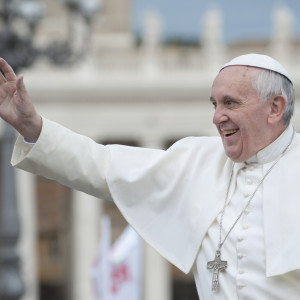In 1633, the Catholic Church declared Galileo “vehemently suspect of heresy.”
Confusing their training in theology and philosophy for expertise in science and astronomy, the magisterium declared Galileo incorrect in claiming that the Earth revolved around the sun. The Earth would revolve around the sun 350 times before the church admitted its error.
Today, the Catholic Church repeats the Galileo error. This time the ramifications are far more deadly. Many popes have admonished the rich to help the poor, but Pope Francis goes a step further. He tells people how they should do it. This is where he makes the Galileo error. Francis is not an economist, and if he has economists advising him, he’d do well to get a second opinion.
Francis most recently spoke on the problems of global nutrition on the occasion of United Nations World Food Day. He said, “The battle against hunger and malnutrition will not end as long as the logic of the market prevails and profit is sought at any cost, with the result that food is relegated to a mere commercial product.”
The pontiff claims that “the logic of the market” keeps people hungry. But “the market” has no logic. “The market” is the sum total of individual interactions among billions of people. The market is the world community — the coming together of billions of people who both offer and want things that billions of others both want and offer.
While there is no “logic of the market,” the logic of the people in the market is that they trade when it is to their mutual advantage to do so. And this is something anyone concerned with world hunger, indeed world peace, should applaud. Until the maturation of markets, the way people gained riches was by looting and pillaging. Markets arose as a way to create riches through peaceful cooperation.
Just as the church was dead wrong to stifle Galileo, Francis is dead wrong now.
Economic freedom measures the degree to which a country’s government embraces markets and the rule of law. If we sort societies according to economic freedom, the same pattern emerges again and again and again. Whether comparing countries, states or cities, societies that are more economically free exhibit better social and economic outcomes than their less economically free counterparts. The pattern doesn’t hold in every instance, but it is a clear and definitive trend. Extreme poverty rates for the half of countries that are less economically free are around seven times the extreme poverty rates for the half of countries that are more economically free.
The pattern repeats around the world and across history. At the end of the 18th century, 95 percent of the global population lived in extreme poverty. That was at the advent of the industrial revolution, and of market capitalism. As both took hold, the world population exploded. Over the next two centuries, the world’s extreme poverty rate fell tenfold at the same time that the world population grew tenfold.
Countries that have not shared in this bounty — North Korea, Cuba and Venezuela come to mind — share Francis’ view that markets are dangerous things to be feared and restricted. The poor will suffer and die in countries that follow Francis’ economic prescriptions to a far greater degree than they will in countries that do not. We do not fault Francis for not understanding economics, but we do fault him for using his bulliest of pulpits to spread his dangerous ignorance.
It took the Catholic church 350 years to admit its Galileo error. This time, the stakes are far higher, and the poor cannot afford to wait three and a half centuries for the church to recant its demonization of markets. They wouldn’t have to if Pope Francis better understood that which he condemns.

